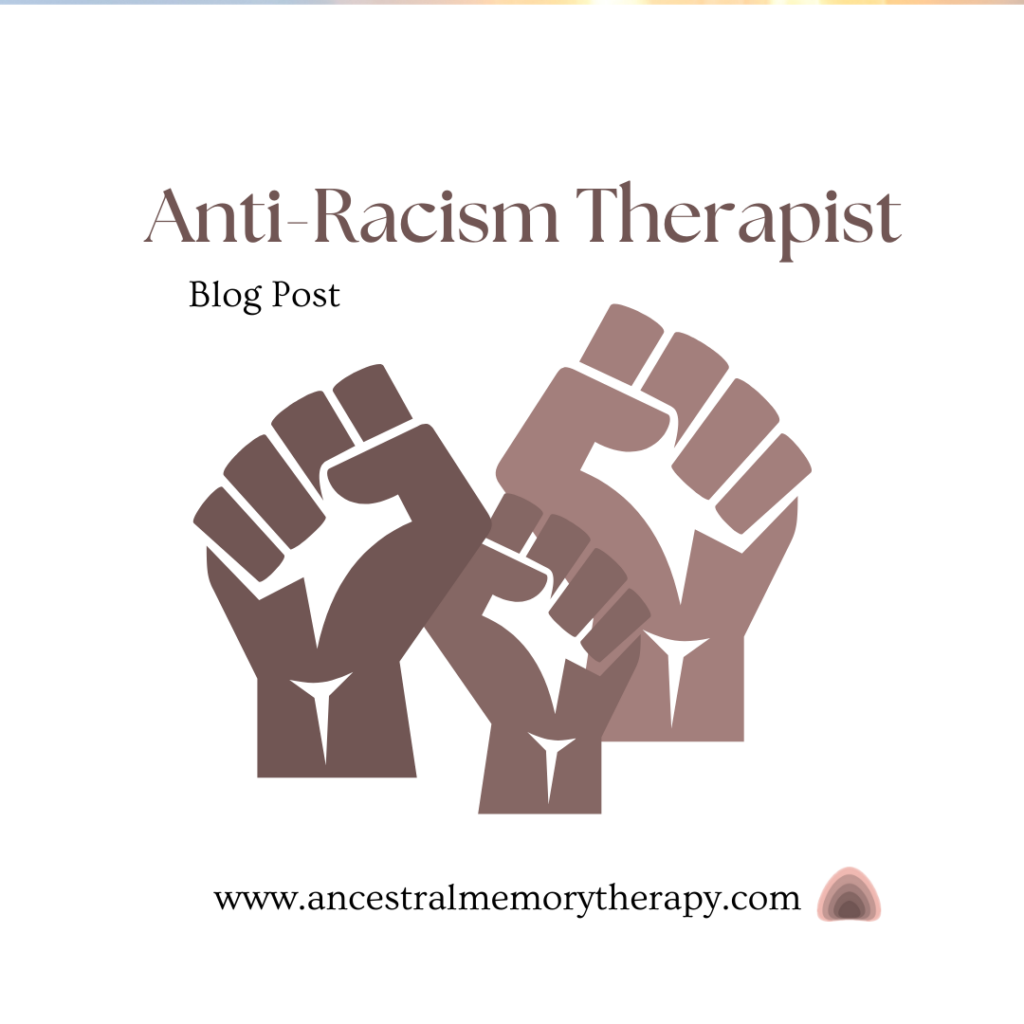There are a lot of commonalities to the human experience, and differences because of the impact of racism. Psychology has historically ignored the impact of racism, and has treated mental health concerns as devoid of structural oppression.
An anti-racism approach to therapy acknowledges and actively addresses the impact of systemic racism, racial discrimination, and racial trauma on individuals’ mental health and well-being. It seeks to challenge the institutions of psychology and other racist structures and beliefs. Anti-racist therapists aim to create a therapeutic environment that is safe and affirming. Here are some key elements of an anti-racism approach to therapy:
- Critical awareness of self and psychology: Therapists create a practice of acknowledging their own biases and committing to ongoing self-reflexivity. They learn about the structural oppression of racial and ethnic groups. As well the role of psychology of excluding racial groups in research and diagnosis. Anti-racist therapists strive to be aware of the ways racism and privilege can influence their therapeutic practice and interactions with clients.
- Trauma-Informed Care: Therapists recognize the impact of racial trauma on individuals and communities and the role of colonization and enslavement. This involves creating a safe and validating space for clients to explore and process their experiences of racism, discrimination, and intergenerational trauma.
- Addressing Microaggressions and Racism: Therapists actively address and challenge microaggressions, racial biases, and racist beliefs that may arise within the therapeutic relationship. They help clients process these dynamics and work towards dismantling internalized racism and building inner wisdom in the face of racial stressors.
- Intersectionality: Therapists adopt an intersectional lens, recognizing that individuals’ experiences of racism are shaped by the intersections of their racial identity with other identities such as gender, sexuality, class, and disability. They understand the ways in which multiple oppressions intersect can place an individual to closer proximity to systemic violence.
- Ongoing Training and Collaboration: Therapists engage in ongoing education, training, and consultation to deepen their understanding of racism, systemic oppression, and racial disparities. They actively seek out non-dominant perspectives, collaborate with colleagues, community members, and clients.
Therapists adopting anti-racist framework is commitment to development critical practice of self and systems. There is a commitment to engage in uncomfortable conversations with community members and allow for space for responsibility and accountability in the face of racial injustice. Therapists who incorporate this approach aim to dialog individuals and communities and promote racial justice within and beyond the therapy room.
If you are interested in becoming anti-racist therapist, reach out to Melissa Taylor to receive anti-oppression consultation (Melissa@ancestralmemorytherapy.com). If you are looking for anti-racist therapist, book a consultation call with one of our team members.




